On 8 July the Royal Society, British Pugwash and International Pugwash hosted a special event marking the 70th anniversary of the Russell-Einstein Manifesto.
A review of the event is available here.
Photos of the event are available below alongside the programme.
You can watch the video of the event here:
On July 9, 1955, two of the most eminent intellectuals of the 20th century, Bertrand Russell and Albert Einstein, issued an appeal to humanity, urging that the immense peril associated with nuclear weapons be recognised by governments and publics alike.
The Russell-Einstein Manifesto warned that nuclear weapons pose a threat to the survival of the human species and called for major efforts to address and contain nuclear dangers.
One of the consequences of the Manifesto was the holding of the first Pugwash conference in 1957.
…
70th anniversary of the Russell-Einstein Manifesto
Programme, 8 July
18:00 Welcoming remarks:
Sir Adrian Smith, President of the Royal Society (delivered on the day by Sir Mark Walport)
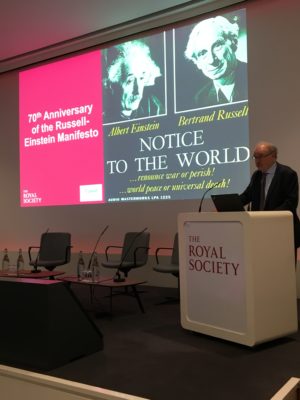
18:10 Reading of the Russell-Einstein Manifesto
18.20 Remarks:
Dr. Hussain Al-Shahristani, President of Pugwash Conferences on Science and World Affairs

18:30 The evolution of efforts to reduce the threat to humanity posed by nuclear weapons:
Lord Browne of Ladyton, Vice-President of the Nuclear Threat Initiative
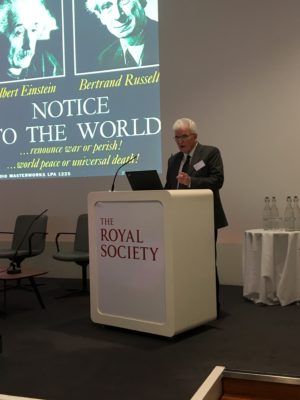
18:50 Reviving momentum towards nuclear threat reduction:
Professor Steve Fetter, School of Public Policy, University of Maryland
Dr Tong Zhao, Nuclear Policy Program, Carnegie Endowment for International Peace
Dr Andrey Baklitskiy, UN Institute for Disarmament Research
Dr Marion Messmer, Senior Research Fellow, Chatham House (moderator)
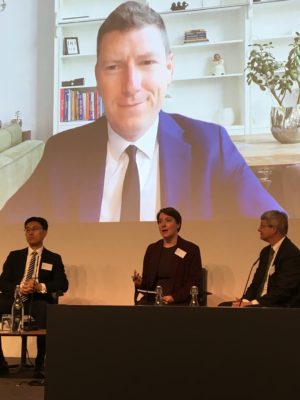
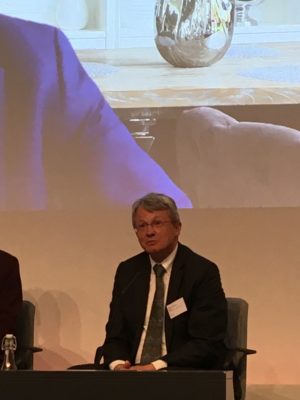
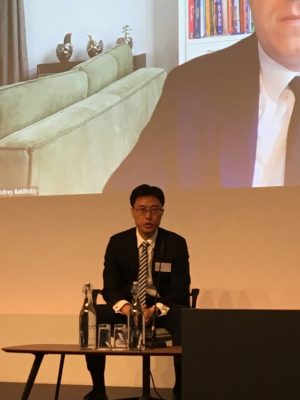
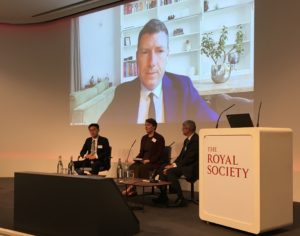
19:35 The Manifesto’s call on scientists to concern themselves with the perils of the nuclear age:
Dame Athene Donald FRS, Professor Emeritus of Experimental Physics, University of Cambridge
Dr Karen Hallberg, Secretary General of Pugwash Conferences (recording)
Lord Rees of Ludlow FRS, Professor Emeritus of Astronomy, University of Cambridge
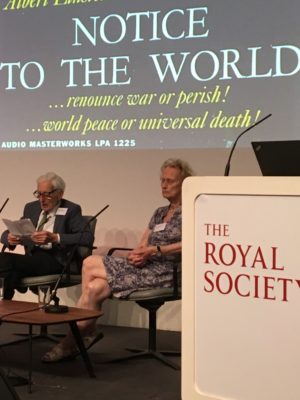

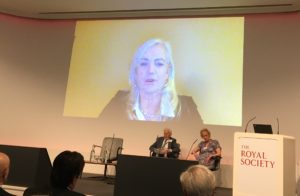
19:45 Close

…
The Pugwash Conferences on Science and World Affairs is an international movement that is rooted in the 1955 Russell-Einstein Manifesto, especially its call on scientists to “assemble in conference to appraise the perils that have arisen as a result of the development of weapons of mass destruction”.
That call led to a meeting of scientists in 1957 at the home of a philanthropist in Pugwash, Nova Scotia (Canada), and to the founding of the Pugwash movement. Throughout the Cold War years these meetings brought together scientists and other experts from East and West to seek innovative ways to minimise the dangers of the arms race. Pugwash is credited with having contributed to several Cold War arms reduction measures and was awarded the Nobel Peace Prize in 1995 in recognition of its role. Pugwash continues to apply its “Dialogue Across Divides” model of conflict resolution to the world’s regions of nuclear risk.
